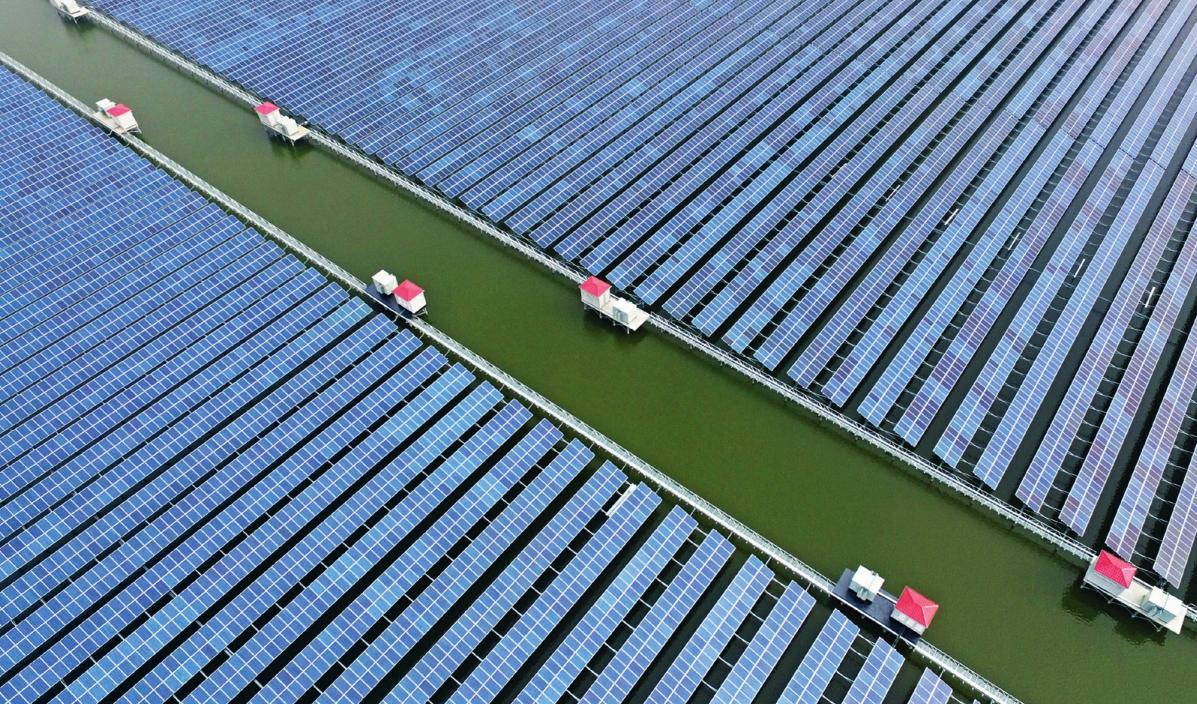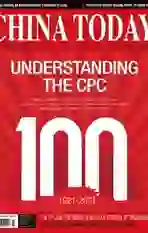Eradicating Extreme Poverty,the CPC’s Historic Feat
2021-08-11ByJéRoMEKABORé
By JéRoME KABORé

THE Communist Party of China (CPC) turns 100 in 2021, making it a year of celebration and of historical and symbolic significance for the Chinese people. Under its leadership, China has achieved spectacular development and succeeded in eradicating extreme poverty all over the country.
With the centennial celebration of the CPC, the big question that many people have in mind is how the Peoples Republic of China managed to eradicate extreme poverty on its soil during a span of only several decades, a goal set by the United Nations which seemed at first a utopian, theoretical conception for many countries, especially in Africa.
China has taught us that we dont have to be fatalistic about poverty and has provided a bench-mark insofar as it is willing to share its experience in poverty eradication in order to build a community with a shared future for mankind.
Endogenous Impetus
The Chinese secret, which has made it possible to identify poverty-stricken villages and poor people, is multifaceted.
First, Chinese leaders made development the ultimate goal, implemented bold reforms and promoted openness. They did a great job in educating the population and raising awareness of selfimprovement in the poor so that impoverished people understand that they can overcome their plight as long as they commit themselves to changing their life in heart and soul and persevere, like the well-known fable from Chinese mythology The Foolish Old Man Removes the Mountains. So the Chinese people freed their minds from the idea of being content with their own plight and stopped waiting for help from the government and other sources of financial support: they quickly rolled up their sleeves and got on the job.
In Xi Jinping: The Governance of China, President Xi, who has always been convinced that one can only get out of poverty after emancipating oneself from ideological poverty, ignited the motivation of the Chinese people so that they understand that they had access to the means to get out of poverty. Xi urged his compatriots to see themselves as the “key to solving shortages of funds and raw materials.” This has inspired and triggered endogenous motivation of impoverished people to get out of poverty. According to Xi, the Chinese should not expect to get the answers to all their problems from others: they ought to find the solutions themselves. This unrelenting effort in education and raising awareness helped the Chinese people understand that poverty is not a matter of fate, that poverty can be successfully overcome as long as courage, insight, a keen sense of responsibility, and the right methods are at play.
A Clear Political Vision
Then, the political will of the ruling CPC has played an important role, which put the fight against poverty and Chinas rural revitalization high on the agenda of Chinas leadership. Indeed, actions speak louder than words, and the central government made rural poverty alleviation part of a larger effort to build a moderately prosperous society for all in China. In 2015, Xi pledged to eradicate extreme poverty by 2020, in line with the first centenary goal set by the CPC, namely the advent of a moderately prosperous society in all respects by 2021. This commitment of the CPC set off an unrelenting campaign on war footing against poverty, bringing about a transformative revitalization of Chinas rural areas on an unprecedented scale and duration with an intensity never witnessed before, benefiting a massive population experiencing their lives transformed.
Well-thought investments led to well-deserved successes. To eradicate extreme poverty in China, a truly“human miracle,” governments at all levels in China made sustained material and financial investments to promote the development of the poorest communities in the country. Over the past eight years, RMB 1.6 trillion(US $250 billion) have been allocated to poverty alleviation. In some provinces, low-income ethnic communities have moved from inhospitable and remote areas to newly-built villages and towns. Millions of people have moved into new homes, while millions of homes have also been renovated.
In other provinces, officials went door-to-door to identify poor families in order to provide them with vocational training, grants to set up businesses, and easy access to markets and financing. Infrastructure such as roads, highways, high-speed railways, hospitals, and schools were built. Credit facility and tax incentives were introduced and poverty reduction funds were set up.
In just a few years, living standards have radically improved in China. Average per capita income in poor rural areas has increased from RMB 6,079 in 2013 to RMB 12,588 in 2020. A five-year transition towards rural revitalization after the completion of eradicating extreme poverty is planned. The State Council Leading Group Office of Poverty Alleviation and Development has been reorganized into the National Administration of Rural Revitalization.
These record-breaking achievements in human history have greatly improved the quality of Chinese peoples life, showing other countries, especially in the developing world, that poverty can indeed be eradicated.
